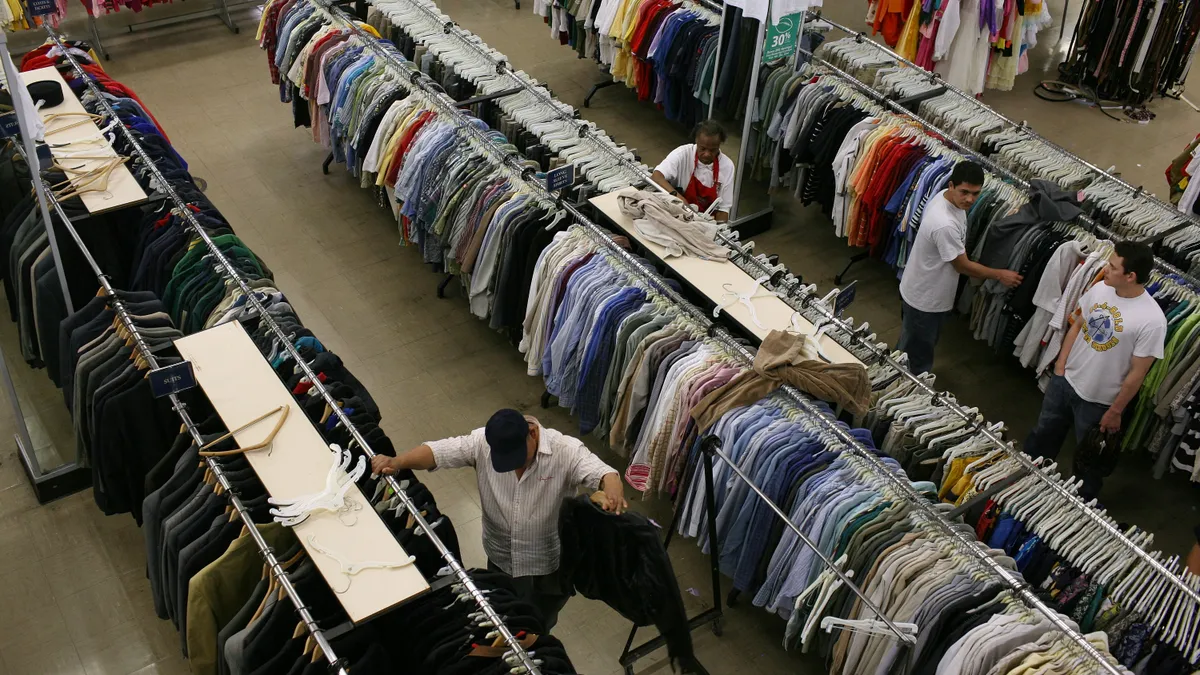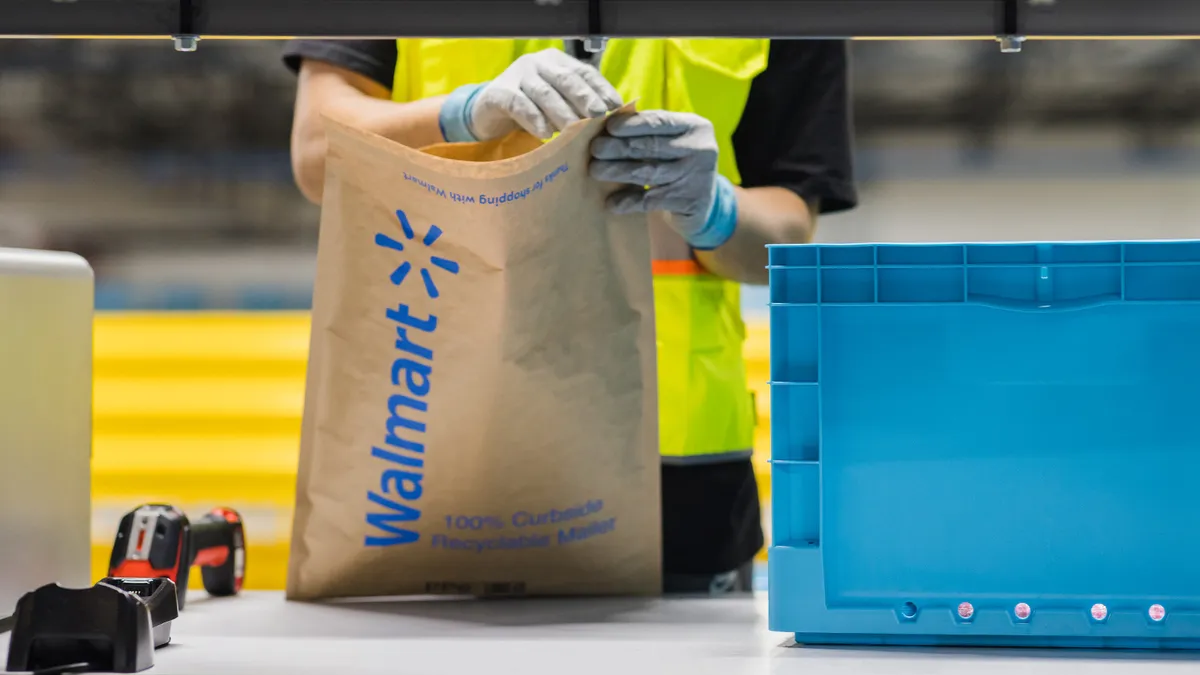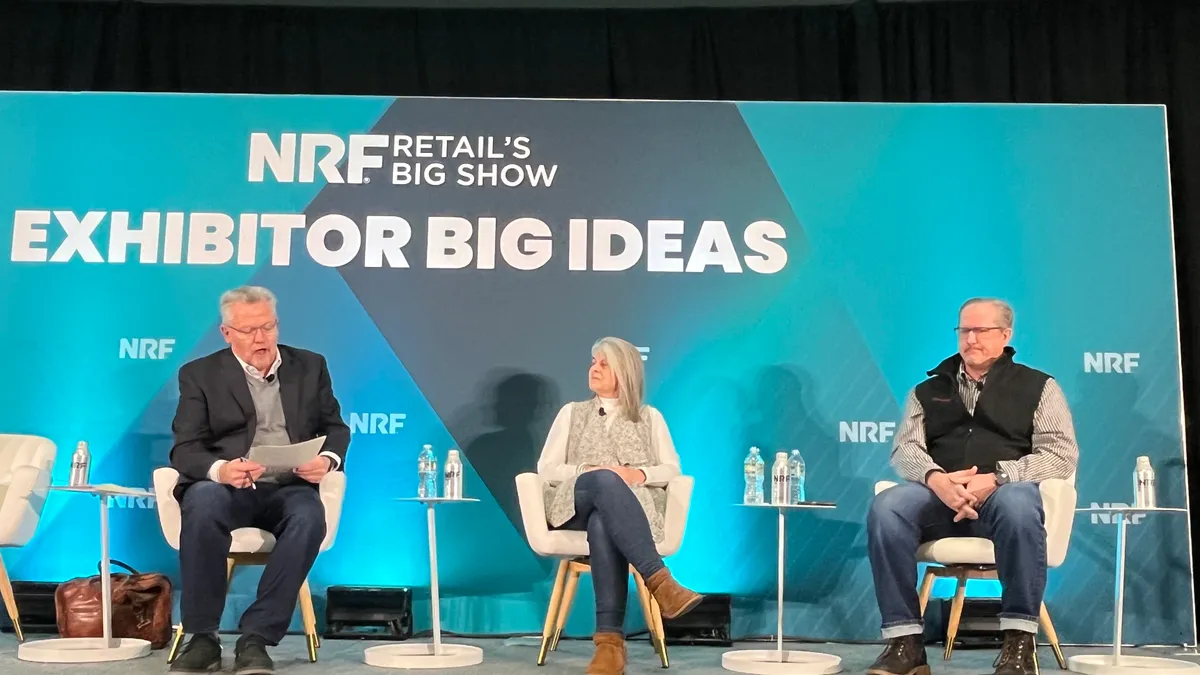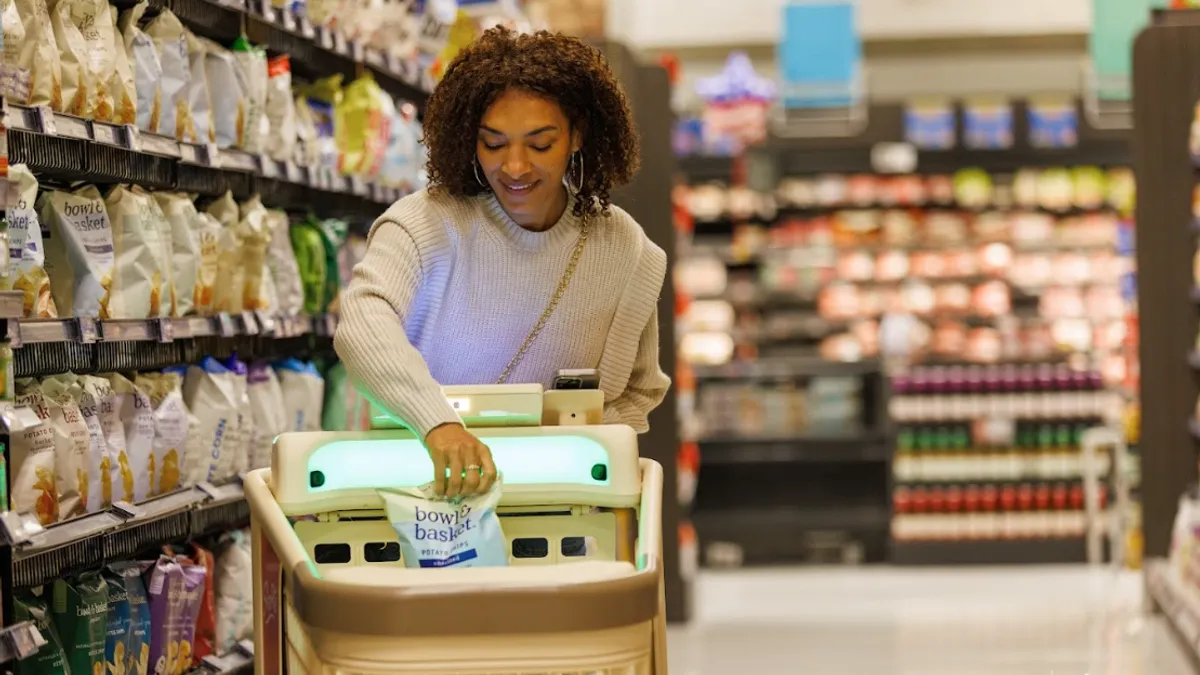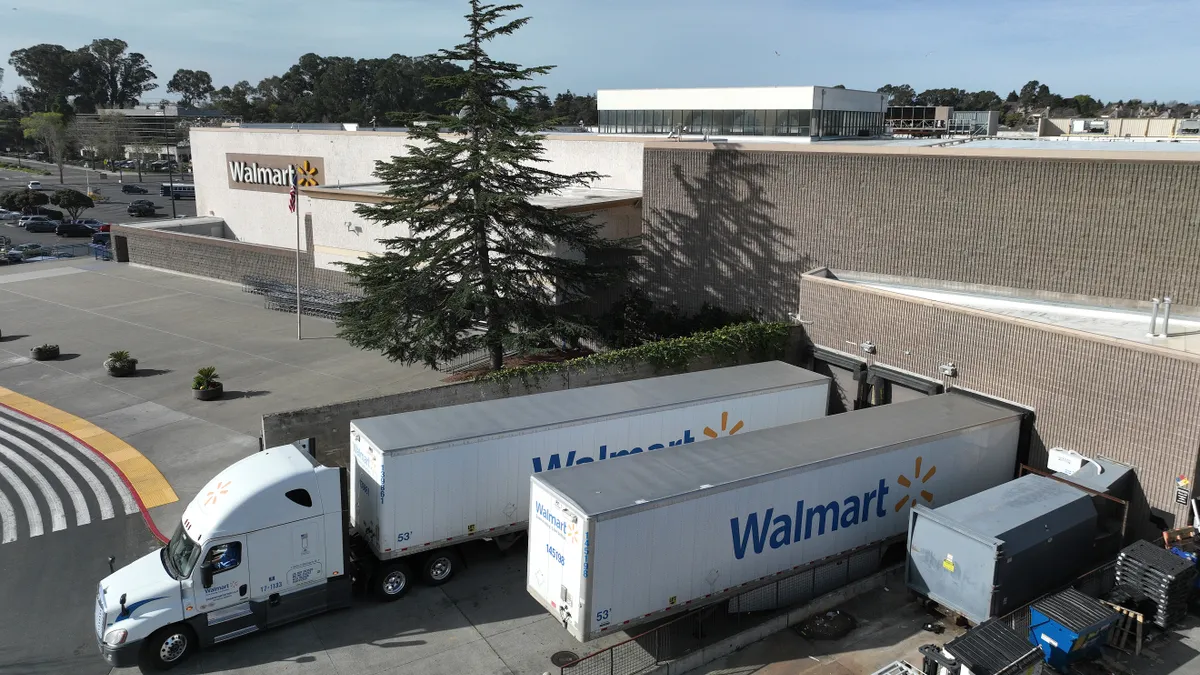Between the rise of e-commerce and the U.S. population's demographic shift to urban centers, the era of thriving big box retail is largely over. Along with evidence that U.S. retail is overstored, many merchants are left scratching their heads about what to do with excess space.
Staples has one answer. The office supplies retailer recently announced that it would partner with office-space sharing startup Workbar to set up co-working spaces in three suburban Boston area stores.
Boston-based Workbar offers members a range of perks including high-end workspaces, conference rooms, private phone rooms, fast and secure Wi-Fi, printers, and unlimited coffee and tea. Workbar spaces feature four basic "neighborhoods," including cafés, a "commons" area conducive to hanging out or meeting, a "switchboard" area ideal for talking on the phone or Skype, and "studies" for more heads-down work. Through the new partnership with Staples, Workbar members are now automatically enrolled in the “Premier Level” of the retailer's rewards program as well, incentivizing them to spend on Staples goods and copy services.
The Staples/Workbar agreement is a quintessentially modern solution to an age-old retail problem, leveraging the principles of the gig economy to repurpose fallow Staples store space while still maintaining the retailer's raison d’être. But while the basic setup of the deal has some analysts praising its ingenuity, others question its sustainability.
“In general I like the idea, but I don’t think it’s a big idea or hugely scalable," Jason Goldberg, senior vice president of commerce strategy at interactive digital agency Razorfish, told Retail Dive. "The stores where Staples has too much space are the ones in the suburbs, [but] the density of people who need a remote office is way less in the suburbs.”
A new twist on an old tradition
Looking solely at its essentials, there’s nothing really new about the Staples/Workbar deal, experts tell Retail Dive. Retailers finding themselves with excess space have long looked for a complementary tenants that can bring in shoppers.
“It’s a very clever twist on the coffeeshop,” said Goldberg (who also blogs as “Retailgeek”), referencing the myriad cafés and restaurants located inside bookstores and department stores.
In recent years both Apple and Samsung have launched “store-within-a-store” concessions inside big-box electronics retailer Best Buy, and as Sears has downsized, it has subleased space to other merchants: Whole Foods subleases 40,000 square feet in three Sears stores, while apparel retailer Forever 21 subleases 43,000 square feet of a store at South Coast Plaza in Costa Mesa, CA, according to Jerry Hoffman, president of real estate services firm Hoffman Strategy Group.
But those are retail-within-retail concepts, Hoffman notes—and that's where the Staples/Workbar agreement is different. Co-working seems like a solid fit within a retail environment dedicated to office supplies and other fixtures of the modern workplace, and could help Staples drive small business customers, independent professionals and members of the mobile workforce into its stores.
“If they were synergistic, that would be the happiest story,” Goldberg said, noting there are some precedents: Now-defunct regional electronics retailer Good Guys, for example, once partnered with Tower Records to open "Tower 2" concept stores inside select Good Guys locations. “You go to one place for the CD player, the other for the CDs,” he explained.
But while Goldberg questions the feasability of the Staples/Workbar deal given the Boston-area stores' suburban locations, Jeremy Baras—founder/CEO of PopUp Republic, which helps retailers identify pop-up space and develop concepts and analytics—sees more potential, especially for suburban dwellers who are employed full time but work from home a day or two each week.
“I think it’s brilliant in a lot of ways,” Baras told Retail Dive. “It’s taking the ‘store within a store’ but really commercializing it. These co-working spaces are big right now. The thought of that within a Staples is really allowing them to take advantage of un-utilized space within their stores, reposition their stores, and embrace this on-demand pop-up culture that complements their brand.”
A new ecosystem
Beyond increased foot traffic, Staples also stands to benefit from the Workbar partnership in other, less tangible respects.
Co-working startups like Workbar are known for attracting a variety of professionals and fostering environments that nurture creativity and innovation—qualities that can have a profound impact on the surrounding landscape, Hoffman says.
“While the co-working space is creating an entrepreneurial 'ecosystem' under its own roof, it is also part of a larger milieu where the whole is greater than the sum of its parts,” Hoffman wrote in Chain Store Age in mid-2015. “And those parts are a vibrant and vital mix of local retail boutiques, pop-ups, chef-driven restaurant concepts and trendy national retailers.”
But Hoffman also notes that co-working spaces "tend to be co-located with emerging concepts like micro-apartments and trendy dining and entertainment options," not within struggling office supply stores in the suburbs.
Staples declined to comment for this story beyond its initial press release, adding it would have more to say once the stores have opened later this spring. But Workbar founder and CEO Bill Jacobson told Retail Dive that the startup already has some locations away from urban centers, mostly in universities.
Like Staples, Workbar is also in wait-and-see mode, Jacobson says, noting the Staples/Workbar spaces are still being built. But he believes that professionals will welcome them as much as they have Workbar sites in urban centers.
"Really what Workbar is doing is just rethinking what is the office, which is much more flexible and has a strong community element," Jacobson said. "The office experience has to start from not just the physical building, but the commute as well. From home to office, to be able to go back to home or out to dinner or the gym, it's all part of that office experience."
The more suburban Staples/Workbar locations are a natural extension of that approach, Jacobson says, adding that despite demographic trends, there are still plenty of people in areas well outside of urban centers. In addition, Workbar memberships allow use of different spaces, so any suburban members could stay closer to home or head into the city depending on their needs or desires for that day.
"People are everywhere. People are living in all different places," Jacobson said. "If you’re getting of an age, raising a family, it’s tough to stay urban. And people move to all different locations for a variety of reasons. If you have a workspace within 20 or 30 minutes of where you live, it gives you that flexibility so you can maybe actually enjoy the suburbs."
Will it work?
Staples and Workbar aren't the only ones taking a wait-and-see approach to their partnership.
"It’s too early to say whether Workbar will work within Staples, and whether it will help with Staples' sales," Hoffman told Retail Dive in an email. “Co-working works well in the broader context of a community of freelancers and/or startups. Co-working spaces tend to be incorporated within an area that offers other amenities.”
But if there is indeed enough demand for Workbar services outside of those amenities-rich city centers, it could be exactly what Staples needs to fend off competition from e-commerce office supplies retailers, especially in light of the company abandoning its long-gestating plans to acquire brick-and-mortar rival Office Depot.
The Staples/Workbar alliance also could point the way forward for other retailers seeking to leverage big-box spaces while bolstering their brand by incorporating virtues like productivity, creativity and entrepreneurship—ideals vital to the success and growth of all companies, regardless of shape or size.
“This is a new concept in the sense that it crosses categories—office-within-retail,” Hoffman said. “So, the Workbar/Staples arrangement is different from pop-ups and store-within-a-store. Pop-ups are temporary tenants. The Workbar partnership appears to be more than a pop-up. It’s a strategy by a retailer to boost in-store sales. And it’s a business model that can help ‘incubate’ new businesses and the freelance/entrepreneur ecosystem.”








